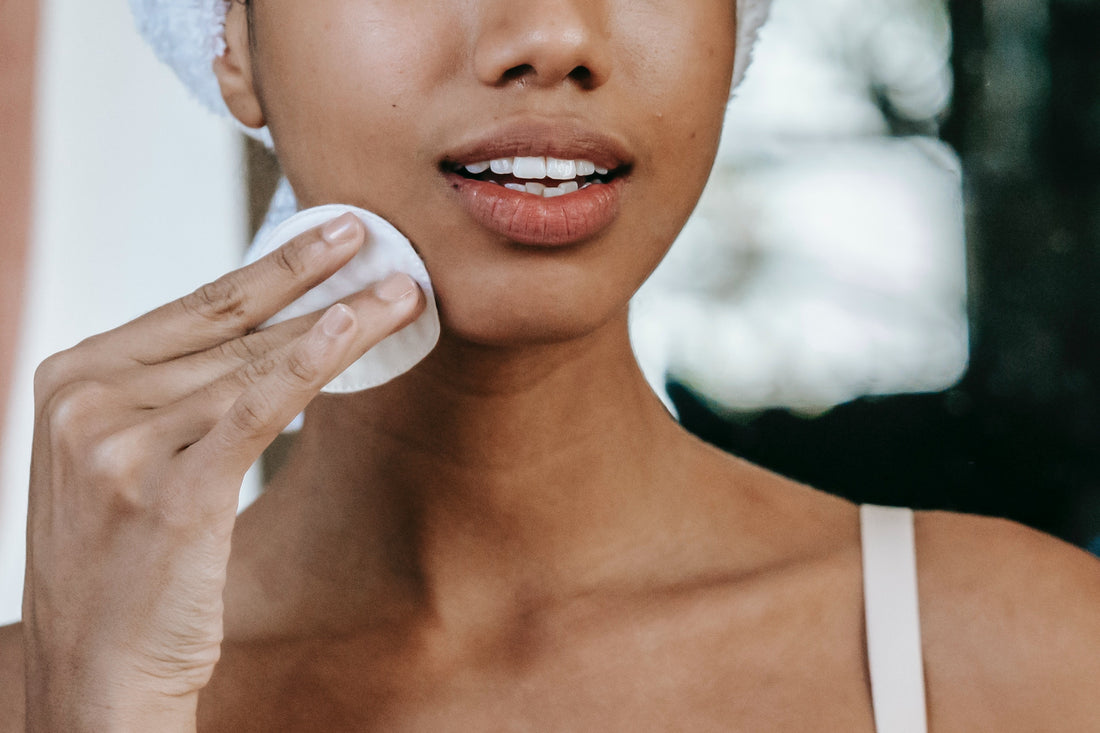
How to Take Care of Sensitive Skin: Expert Tips
If allergic reactions, skin irritation and redness are all commonplace for you, you might have sensitive skin.
Having sensitive skin can make it difficult to develop a skincare routine that isn’t going to inflame existing problems, or create new ones. You might find yourself wasting money on endless skincare products, while still facing the same issues.
So, how to take care of sensitive skin? We’ve created a comprehensive guide to help you avoid irritation, soothe any flare-ups and enjoy a healthy, nourished complexion all year round.
Firstly, what is sensitive skin?
Sensitive skin can be categorised as skin that reacts negatively when using certain topical skincare products. Symptoms of sensitive skin include:
Dry or flaky skin Redness Generalised irritation Itchiness Rashes Hives Burning sensations Bumps on or under the skinYou only need to check off one of the above symptoms in order to categorise your skin as sensitive, although those with ultra sensitive skin might experience several of these symptoms.
While sensitive skin reactions can be alarming or unsightly, they’re mostly harmless. Most skin sensitivities can be avoided by omitting certain ingredients or products from your skincare routine. However, if you experience a sudden, significant swelling around the mouth or tongue area, always seek medical help right away.
What causes sensitive skin?
Sensitive skin can be caused by a number of factors, either environmental or genetic. In most cases, a sensitive skin flare-up can be caused by one of the following:
Rosacea Eczema Allergies Dry skin Excessive sun damage Damaged skin barrier Abrasion (such as a negative reaction to a skin peel) Overusing harsh skincare products (such as chemical exfoliants)How do I know if my skin is sensitive?
If you experience any of the symptoms listed above, you most likely have skin sensitivities. These sensitivities may be caused by allergies, intolerances or genetic conditions such as eczema.
If you want to better understand your skin sensitivity, you can always speak to a dermatologist. Dermatologists can run an allergy test and analyse your skin, which can help you better treat existing issues.
What should I avoid if I have sensitive skin?
If you have sensitive skin, you should avoid using abrasive topical skincare products, especially AHAs and BHAs (also known as chemical exfoliants). These acids are known as “active ingredients”, and are too harsh for use on sensitive skin. Using acids on sensitive skin can provoke redness, irritation and extreme sun sensitivity.
You should also avoid popular topical retinol treatments, as retinoids are known to aggravate sensitive skin and can provoke extreme dryness. You should also steer clear of any skincare product with a lengthy ingredients label, especially those that include alcohol, petroleum, sulphates or fragrances. Prioritise products with natural (and few) ingredients.
How to take care of sensitive skin: 4 steps
To avoid sensitivity flare-ups, we recommend following our simple, 4-step skincare routine for sensitive skin:
1.Use gentle skincare products
The worst thing you can do for sensitive skin is use abrasive skincare products. Abrasive skincare products can include gritty scrubs, clay washes and harsh exfoliators; anything that tugs and pulls on the skin.
Instead of drying out your skin further with harsh formulas, opt for dermatologically-approved products that have been designed for sensitive skin types. Pharmaceris sensitive skin products are formulated without irritants to help balance the skin’s pH. Their range includes moisturisers, gentle cleansers and toners that won’t strip, irritate or cause flare ups on sensitive skin.
2.Protect your skin from the sun
One cause of sensitive skin is extensive sun damage. Not only does sun exposure age the skin and cause potentially life-threatening cancers, but it can also damage the skin’s barrier and pH. When you have a damaged skin barrier or pH, you’re more likely to experience symptoms of sensitive skin.
To avoid further sun damage, always use a sunscreen with a minimum of SPF30. An SPF of 30 will protect your skin from up to 97% of the sun’s dangerous UV rays, while also protecting your skin from accelerated ageing.
3. Turn down the heat
If you have sensitive skin, you’ll want to do everything possible to avoid drying out your skin even further. This includes re-evaluating how you shower and wash your face. Did you know that taking a hot shower once a day is enough to dry out your skin and cause irritation? Hot water strips the skin of its natural oils, so it’s best to stick to lukewarm showers where possible.
4. Keep your skin hydrated
Dry skin is the most common culprit when it comes to skin sensitivity. If you want to avoid flare-ups, it’s essential to invest in a high-quality, sensitive-friendly moisturiser. When buying any new skincare product, always do a 24-hour patch test before use to avoid any unwanted reactions.
The bottom line
To take care of sensitive skin, the most important thing is to keep your complexion free from irritants. From alcohol to sulphates, get clued up on the ingredients to avoid.
With careful attention and the right skincare products, you can say goodbye to irritation, redness and unsightly allergic reactions.










